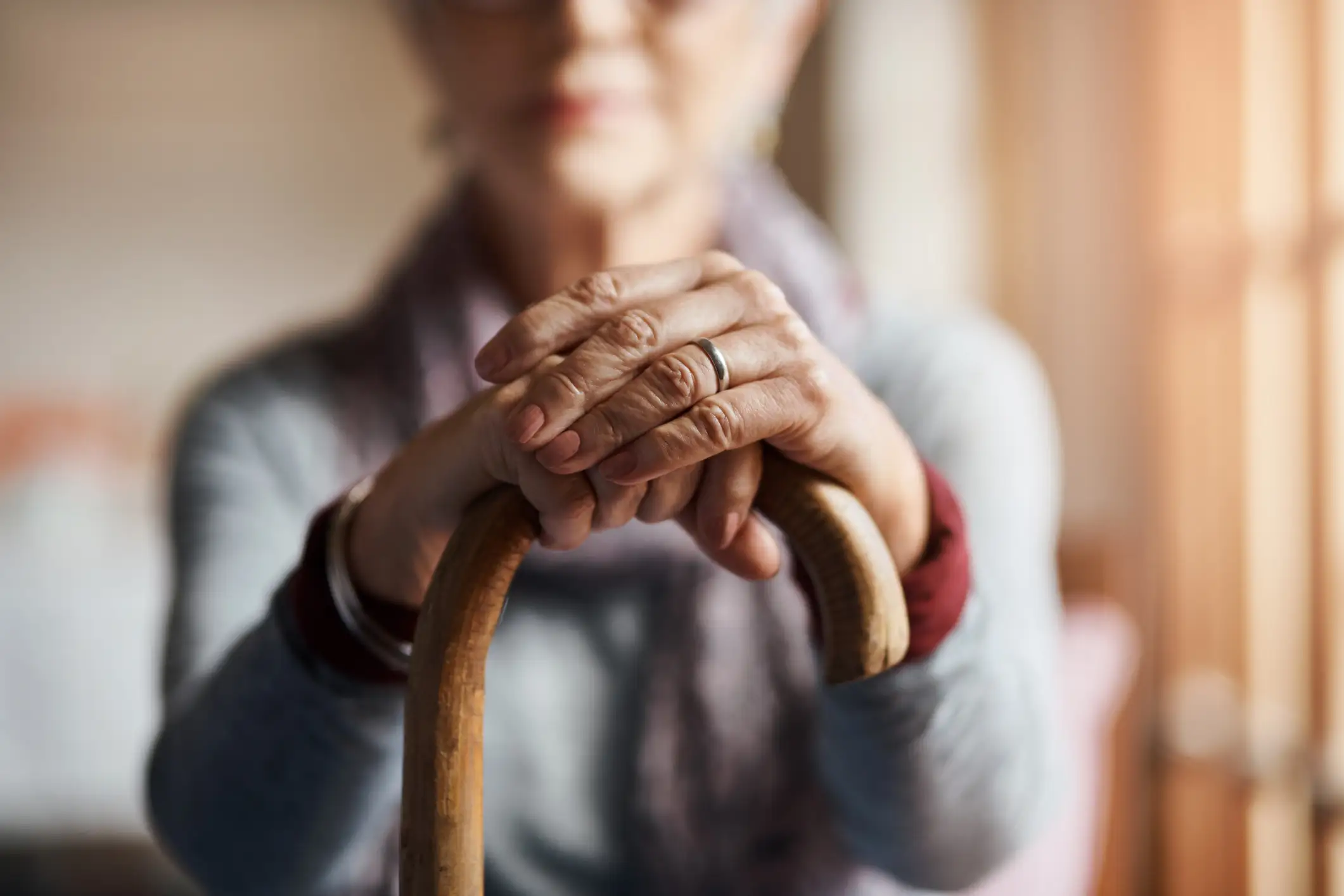As we age, balance often becomes more difficult, affecting independence, mobility, and overall quality of life. Balance problems can lead to falls, dizziness, and confusion—but understanding what causes balance issues in older adults is key to managing symptoms and staying safe.
Often linked to the inner ear, neurological conditions, chronic diseases or medications, these issues can be addressed with the right care. Recognizing the signs early helps older adults take proactive steps toward better health, fall prevention, and greater peace of mind.
At Wyndemere, we prioritize resident safety and wellness, offering support for seniors facing balance challenges while fostering a community that promotes independence and well-being.
Let’s explore what causes balance issues in older adults—and how to reduce the risks that come with them.

Most Common Balance Problems in Older Adults
Benign Paroxysmal Positional Vertigo (BPPV)
BPPV is a common cause of dizziness in older adults. It occurs when small calcium particles in the inner ear become dislodged and move into the semicircular canals. These canals are responsible for detecting head movement, and when the particles move, they send false signals to the brain, causing dizziness and unsteadiness.
Symptoms of BPPV include sudden vertigo when changing head positions, such as turning in bed or looking up. Though BPPV is treatable through specific head movements or physical therapy, it remains one of the most common causes of dizziness in seniors.
Meniere’s Disease
Meniere’s disease is an inner ear disorder that can cause episodes of vertigo, hearing loss, and ringing in the ears (tinnitus). Fluid buildup in the inner ear disrupts normal balance function, leading to symptoms that can appear suddenly and without warning.
These unpredictable attacks increase the risk of falls, as vertigo can be so severe that it leaves individuals unable to stand. Early diagnosis and treatment can help manage symptoms and reduce the impact on daily life.
Labyrinthitis
Labyrinthitis is an inflammation of the inner ear, often caused by viral infections. The condition affects the vestibular system, which controls balance, leading to dizziness, confusion, and sometimes hearing loss.
Though symptoms may improve with time, labyrinthitis can cause significant discomfort and challenges in maintaining balance. In some cases, vestibular rehabilitation exercises can help improve balance and recovery.
Chronic Conditions Affecting Balance
- Hearing and Vision Loss: As we age, sensory decline in both hearing and vision can make it more difficult to maintain balance. Reduced sensory input means the body struggles to perceive its surroundings, increasing the risk of falls.
- Neurological Diseases: Conditions like Parkinson’s disease and Alzheimer’s disease often affect coordination and spatial awareness. These diseases can alter the brain’s ability to process information about body position, which can cause instability and unsteadiness.
Ramsay Hunt Syndrome
Ramsay Hunt syndrome is a viral infection affecting the facial nerves near the inner ear. The condition can lead to hearing loss, vertigo, and facial weakness, which disrupt balance. Early treatment can help reduce the long-term impact of this syndrome, and management strategies can minimize symptoms.
Medications and Alcohol
Certain medications commonly prescribed to older adults—such as those for blood pressure, anxiety or sleep disorders—can cause dizziness or affect coordination, leading to a loss of balance. These side effects can make balance issues more prevalent, putting seniors at higher risk for falls.
Alcohol also plays a significant role in impairing coordination and can contribute to feelings of dizziness, further increasing the likelihood of falls. The combination of dizziness, loss of balance, and impaired coordination makes it crucial for older adults to be cautious.
Seniors should always consult with their health care providers about the side effects of medications and how alcohol consumption might impact their balance and overall stability.
How To Manage Falls and Balance Issues
Managing balance issues is vital for preventing falls. Here are some ways older adults can take proactive steps to address balance problems:
- Medical Evaluation: If persistent dizziness or balance issues occur, it’s essential to consult with a doctor to determine the underlying cause and receive appropriate treatment.
- Physical Therapy: Vestibular rehabilitation exercises, often recommended by Physical Therapists, can help improve stability and coordination, making it easier for individuals to maintain their balance.
- Assistive Devices: Canes, walkers, and handrails are useful tools for enhancing safety, providing extra support when walking, and preventing falls.
- Home Modifications: Making changes to the home environment—such as removing trip hazards, improving lighting, and installing grab bars—can make a big difference in preventing falls.
- Healthy Lifestyle Choices: Staying active, eating a nutritious diet, and managing chronic conditions are all ways to improve overall health and reduce balance issues.
How Wyndemere Supports Senior Health and Fall Prevention
At Wyndemere, a Life Plan Community offering a LifeCare contract, we prioritize resident safety and well-being—especially when it comes to preventing falls and promoting confident mobility. Our thoughtfully designed community features accessible living spaces, supportive handrails, and an environment that encourages residents to stay active, engaged, and independent.
To take fall prevention to the next level, Wyndemere proudly utilizes VST Balance, an innovative, AI-powered system that evaluates key indicators of mobility such as walking, leaning, sitting, and standing.
This cutting-edge technology allows our clinical team to proactively identify potential fall risks and tailor personalized interventions—helping residents stay stronger, safer, and more confident in their daily routines.
In addition to this powerful tool, our on-site health care services, physical therapy, and rehabilitation programs are designed to support each resident’s unique balance and mobility needs. Our robust fitness and wellness initiatives further promote strength, flexibility, and coordination—empowering residents to enjoy an active and vibrant lifestyle with peace of mind.

Take Control of Your Balance and Health at Wyndemere
Balance issues don’t have to limit your lifestyle. By understanding the causes and taking steps to manage symptoms, older adults can continue to lead active, fulfilling lives. At Wyndemere, we prioritize safety, wellness, and proactive care to help you maintain stability and independence.
Our community provides peace of mind, knowing you have access to the resources you need to stay balanced and healthy. Contact us today to learn more or schedule a tour of our community.




